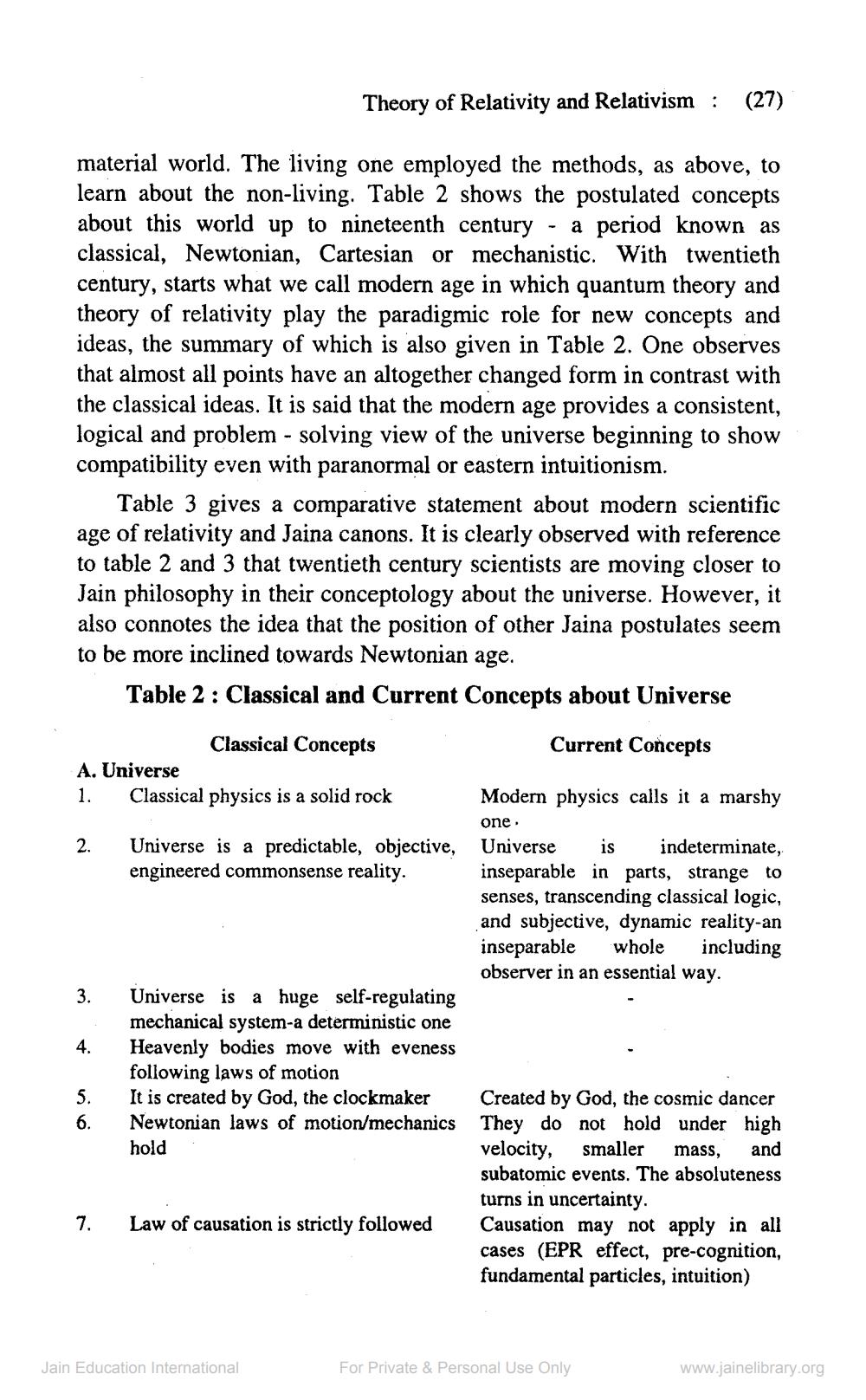________________
Theory of Relativity and Relativism : (27)
material world. The living one employed the methods, as above, to learn about the non-living. Table 2 shows the postulated concepts about this world up to nineteenth century a period known as classical, Newtonian, Cartesian or mechanistic. With twentieth century, starts what we call modern age in which quantum theory and theory of relativity play the paradigmic role for new concepts and ideas, the summary of which is also given in Table 2. One observes that almost all points have an altogether changed form in contrast with the classical ideas. It is said that the modern age provides a consistent, logical and problem-solving view of the universe beginning to show compatibility even with paranormal or eastern intuitionism.
Table 3 gives a comparative statement about modern scientific age of relativity and Jaina canons. It is clearly observed with reference to table 2 and 3 that twentieth century scientists are moving closer to Jain philosophy in their conceptology about the universe. However, it also connotes the idea that the position of other Jaina postulates seem to be more inclined towards Newtonian age.
Table 2: Classical and Current Concepts about Universe
Classical Concepts
Current Concepts
A. Universe
1.
2. Universe is a predictable, objective, engineered commonsense reality.
3.
4.
5.
6.
Classical physics is a solid rock
7.
Universe is a huge self-regulating mechanical system-a deterministic one Heavenly bodies move with eveness following laws of motion
It is created by God, the clockmaker Newtonian laws of motion/mechanics hold
Law of causation is strictly followed
-
Jain Education International
Modern physics calls it a marshy
one.
Universe is indeterminate, inseparable in parts, strange to senses, transcending classical logic, and subjective, dynamic reality-an inseparable whole including observer in an essential way.
Created by God, the cosmic dancer They do not hold under high velocity, smaller mass, and subatomic events. The absoluteness turns in uncertainty. Causation may not apply in all cases (EPR effect, pre-cognition, fundamental particles, intuition)
For Private & Personal Use Only
www.jainelibrary.org




